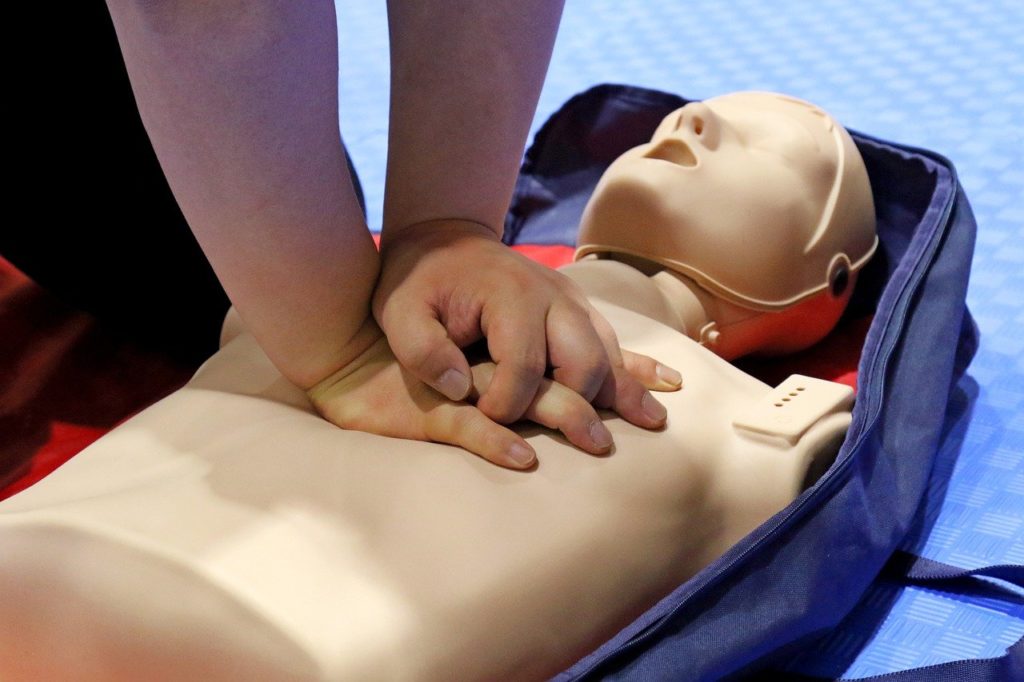It may be difficult to believe, but the first person to respond to a medical emergency is often not a doctor, but rather an ordinary citizen like you and me.
In such instances, the first and most crucial piece of advice I can give you is to always remain calm and composed.
So, here’s more on what you should do in certain situations.
Apoplexy

Apoplexy or stroke is usually brought about by a blood clot or hemorrhage involving a blood vessel in the brain. People who suffer from high blood pressure are most often victims of apoplexy. The signs of this condition are paralysis on one side of the body, lack of muscle tension and heavy, audible breathing (snoring). The victim is nearly always unconscious. Stroke, like all cases involving heart action, calls for prompt medical attention. While awaiting the arrival of the physician, keep the victim as quiet as possible and lie down, face up or face down. If mucus tends to collect in the mouth, put him slightly on his side and turn his head completely to the side to drain the fluids.
Simple Fainting

Simple fainting is a nervous-system reaction that causes a temporary lack of sufficient bloody supply to the brain and brings about unconsciousness. It can be caused by injury, by the sight of injury or by lack of sufficient concentration of oxygen in a room.
Fainting does not occur if the brain is receiving an adequate supply of oxygenated blood (blood that has received a fresh oxygen supply from the lungs). Therefore, recovery follows when the victim gets his head lower than his heart by bending over or lying down. From time to time, many kinds of medication have been recommended. It does not really help, however, to give aromatic spirits of ammonia and the like or to hold smelling salts under the victim’s nose.
If recovery of consciousness is not prompt, medical attention is needed because the underlying cause of the unconsciousness is a matter of great concern.
Epileptic Seizures

Until recent years, epilepsy was not well understood. Its cause was not known and there was very little relief for its victims. Although more effective medical treatment is available today, untreated patients and occasionally even some of those under care are subject to periods of unconsciousness. These episodes may last for only a moment or for a long time. They may be accompanied by convulsions involving the entire body. Epileptics who recognize the symptoms that precede an attack usually seek a quiet place and lie down with something between their teeth to prevent injury to the tongue.
If you find a person having an epileptic seizure, do not try to restrict his convulsive motions. Try to keep him from injuring himself and if possible, gently place something –a book cover or a spoon handle wrapped with a clean cloth –between his teeth. When the convulsive motions have ceased, loosen the clothing about his neck and allow him to lie flat with his head turned to one side. He may have vomited during his seizure and any stomach contents remaining in his mouth are not so likely to be drawn into his lungs if his head is kept in a sideways position. Let him rest undisturbed during the deep sleep that follows a seizure.
Unconsciousness –Cause Unknown

Unconsciousness is associated with many injuries and illnesses. When its cause is unknown, a first aider can distinguish only between those cases which require artificial respiration and those where breathing is adequate. The accident scene nearly always provides a good clue to the cause of unconsciousness. If it does not, the first aider in the presence of reliable witnesses, should search the victim for a written statement concerning specific diseases that may be the cause such as diabetes, heart disease or others.
If breathing is not adequate, start artificial respiration immediately and have someone notify a physician or police officer.


